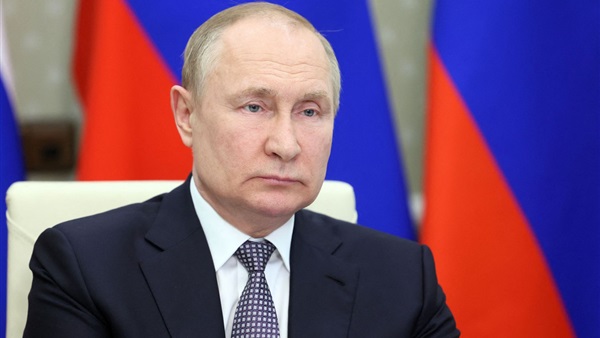Putin rewards his old ally Viktor Orban with extra supplies of natural gas

Russia has begun sending additional gas deliveries to Hungary in an apparent reward for its delicate balancing act between the Kremlin and the West.
While states such as Germany and Austria fret about a winter energy crisis, Hungary is to receive 700 million cubic metres of Russian natural gas on top of the amount in its contracts.
Viktor Orban, Hungary’s nationalist prime minister, is an old ally of President Putin and the pair have similar stances on subjects such as gay rights, gender and Islam.
Since Russia invaded Ukraine in February Orban has repeatedly put a brake on European Union sanctions and called for peace negotiations between Moscow and Washington.
His country gets about 85 per cent of its gas from Russia and is also dependent on Russian pipeline oil and support for the nuclear reactors that generate about half its electricity.
Russia has drastically cut its gas shipments to most of Europe, all but shutting down the Yamal pipeline through Poland and reducing the flow through the Nord Stream pipeline to Germany by 80 per cent. This has left Berlin and several other capitals that rely heavily on Russian gas in danger of shortages.
However, Hungary will receive an additional 2.6 million cu m a day from Russia by the end of this month, delivered through the TurkStream pipeline, which runs beneath the Black Sea to Turkey, with a connector stretching northwards across Serbia and Bulgaria.
The deal was struck last month after Peter Szijjarto, the Hungarian foreign minister, visited Moscow. Tamas Menczer, a spokesman for the ministry, said at the weekend that it was his government’s “duty to ensure the country’s supply of natural gas”.
The top-up is in addition to the 4.5 billion cu m a year Hungary buys from Gazprom under a 15-year agreement signed last year. However, the country’s gas reserves are thought to be relatively low for this time of year.
Last week the Mol group, an oil and gas company in Hungary, paved the way for Russian oil to resume flowing to Hungary and Slovakia through the southern section of the Druzhba pipeline network. Western sanctions had interrupted the payment of transit fees to Ukraine, which cut off the route ten days ago, but Mol has settled the bill.
Russia’s offensive in eastern Ukraine has stalled in recent weeks. Over the weekend Ramzan Kadyrov, the belligerent leader of the south Russian republic of Chechnya, said he would reinforce the Donbas front with a further contingent of volunteers.
The Kadyrovtsy fighters from Chechnya have a reputation for brutality and have gained notoriety for extreme violence in Ukraine. The investigative website Bellingcat reported this month that a Chechen unit called Akhmat had carried out several war crimes, including the apparent sexual abuse and killing of a Ukrainian prisoner of war, whose death was recorded in a video circulating on social media.
The severed head of another Ukrainian prisoner was displayed on top of a pole in Popasna, after Kadyrov claimed that his forces had spearheaded the town’s capture in May.
Kadyrov, one of Putin’s most powerful allies in Russia, claims that more than 10,000 of his fighters have been sent to Ukraine, although analysts say the actual strength of the deployment is probably between 3,500 and 7,000.
The scale of the new consignment of troops remains unclear. “Judging by their fighting spirit, they intend to cut out the malignant tumour of Nazi trash,” Kadyrov wrote on the Telegram messaging app.
On Saturday the Russian defence ministry claimed it was “evacuating” nearly 28,000 people a day from the “dangerous” Donbas region. Mikhail Mizintsev, of Russia’s National Defence Management Centre, said more than 3.3 million people, including 530,000 children, had been transferred from Donbas to Russia. The UN has estimated that the total is closer to 1.9 million.
Ukraine argues that this is part of a mass forced transfer, a war crime, but Russia insists it is a humanitarian act.
Many refugees deported by Russia from the territories it has occupied in Ukraine later try to cross into Europe, often through the Baltic states. Nearly 22,000 war refugees from Ukraine have travelled from Russia to Estonia through the border city of Narva, Estonian media say.
Russia has already released millions of pounds from its reserves to cope with the influx of people from Ukraine, according to the BBC’s Russian service.
Moscow is said to have spent the equivalent of £41 million on temporary accommodation and catering for the “evacuees”.







